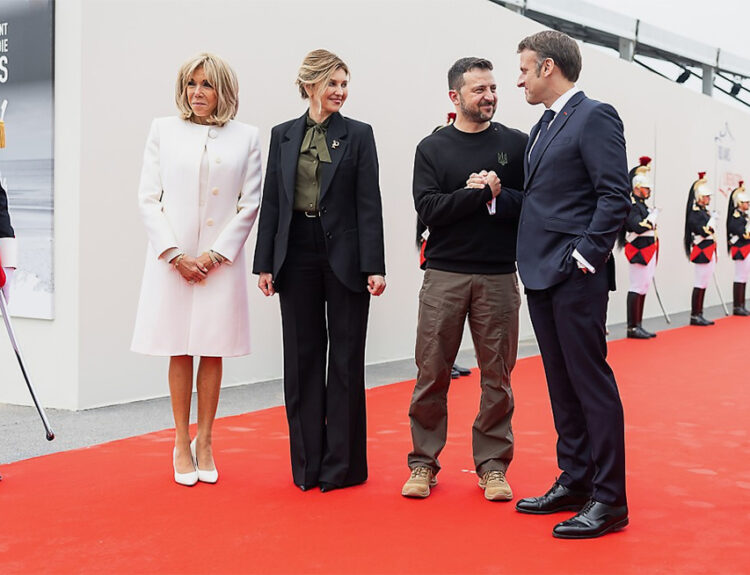During the Lviv Media Forum, which is the largest media conference in Central and Eastern Europe and the second largest in Europe after the International Festival of Journalism in Perugia, we spoke to media expert and co-founder of Ukraine Crisis Media Centre Maksym Savanevskyi. They discussed all the most important issues: state information policy, the work of social media and how to protect yourself from manipulation. And most importantly, how to counteract Russia in its struggle for influence on society.
Are social media good or bad in an information war? For example, could the UK have survived the Second World War if it had social media?
Everyone remembers the period of total enthusiasm for social media when it was first created. There was even a fashionable term called ‘citizen journalism’. By the way, I was also an apologist for this story: ‘Wow, we won’t have a monopoly on the truth. Now everyone will be able to express their opinion.’ It looked very promising as an idea. Moreover, there are still quite a few people in the West who believe in the idea of social journalism. Social media is really a great tool for interaction between people. Someone writes, someone comments. It’s a kind of ‘town hall’ in the broadest sense of the word, when people united by some common interest communicate with each other. But when large totalitarian states begin to use social media for their own purposes, a completely different story begins. And I must say that autocracies use social media as a tool much more effectively than democracies. Democratic countries, in principle, hardly ever use social media to achieve their goals. Because freedom of speech is sacred and everyone has the right to say what they want.
Returning to the question, before this war, all armed conflicts, even in the twentieth century, usually took place with a complete monopoly of the state on the dissemination of information. And when even hostile states, like Russia and other dictatorships, can influence your society through social media, the result is devastating. So far, all activity has been focused on fighting fake news. The illusion that we will debunk them all and win is still dominant.
The fight against fakes is usually carried out after the fact, when they have already done their dirty work…
Fakes are not the biggest threat. The biggest risk posed by social media is segmentation by interest. The audience is not homogeneous at all, each community lives in its own ‘information bubble’.
And we don’t have to deceive people, we can convey real information that something is happening. Let’s take a community, for example, dog lovers. There will be mostly information about dogs. About how to feed them, how cool they are, how much we love them all. And then there is a post that some deputy from the ruling party has insulted a dog. For this community, this fact will mean that the entire government is a dog-eater. This is exactly how Russia works. It enters different spheres and spreads information that is not fake, but is emotionally negative towards the government or the army.
I think that if social media had existed in the 30s and 40s of the last century, the US would not have entered World War II. In addition, there would have been a very large political representation of pro-Hitler politicians in America.
So what should we do about it?
It seems to me that the area in which we have not worked out, although we had every chance, especially in the first year of the war, is to put pressure on large Big Tech companies, especially American ones. To make them reform their approaches to information dissemination. In the US, there is no war and freedom of speech is sacred, which is what manipulators and fake news spreaders use. In Ukraine, you don’t have the right to post a video on Facebook of Russian crimes. You will simply be banned for demonstrating violence.
In 2014-15, people were banned on a massive scale for saying the word ‘moskal’, even for mentioning the name of the Transcarpathian governor Hennadiy Moskal. There are many such examples. The very fact that you cannot show what is happening in Ukraine on a social network is actually censorship. The result is a paradoxical situation: there is censorship of the truth, but no censorship of Russian fake propaganda.
This applies not only to Facebook. Recently, there was a study on TikTok about which topics are better perceived by the promotion algorithm. The topic of the war in Ukraine is very much ‘suppressed’. It turns out that Ukraine is practically unable to use social media as a tool for conveying the truth to Western society, while Russia easily conveys its propaganda to it.
In Ukraine, the issue of blocking Telegram is periodically raised, as it is mostly used to spread Russian fakes. What do you think of this idea?
There are two problems with Telegram: the work of the Russians and the work of the Ukrainian state. People run to Telegram for news because of the low level of trust in traditional media. Since the beginning of the large-scale invasion, Ukraine has practically established a monopoly on information dissemination, combining the main TV channels into a single telethon. Most of the other Ukrainian media have been operating in a kind of compressed mode. Between the telethon and Telegram channels, people chose the latter.
And the state actually blessed this whole process, because it started using Telegram for its own purposes as an important communication channel. And thus legalised it as a source of information. Now, for the majority of the Ukrainian population, it is no longer a messenger, but, first and foremost, a media channel.
Should Telegram be banned? I think it’s too late. It is better to work to make it more understandable and transparent, to disclose its sources of funding, and to appoint a representative in Ukraine. If it refuses, government authorities and politicians should leave Telegram. They should simply stop using it as an official channel of information.
A lot of things in Ukraine are currently tied to Telegram, but as the experience of blocking Russian Odnoklassniki and VKontakte has shown, society has calmly survived their absence.
Okay. So we understand that Russians are manipulating audiences through Telegram and even Facebook. What should we do about it?
Continue to influence American companies to change their policies. And this is an achievable goal.
Are you referring to Meta, Google, and, say, X or something else?
First of all, Meta. Because we cannot influence TikTok, but we can try to influence Instagram and Facebook. This is a very ambitious and useful goal for the state. Because Ukraine is the first country to face the fact that social media can be used to start a war. The threat is very real: social media can be used to change the government or to arrange the collapse of the state. Europe and the United States have also come close to understanding these threats, but they are not yet fully aware of their seriousness.
It is already necessary to develop experience in combating manipulation on social media, engage research centres, and study Russia’s algorithms. We need to work together to limit its channels of influence and increase the number of moderators. The main thing is that American BigTech companies should be willing to do so or have no choice.
The immediate threat is the influence on the US elections through social media. I do not rule out that there may be unpleasant surprises. It’s just that few people talk about these risks. Because if you are against Facebook, you are against freedom of speech. In the US, Facebook already faced the state machine in 2017 after the Cambridge Analytica scandal. But they managed to settle everything. Ukraine, with its experience, can be a trendsetter that will change this situation.
And who exactly should do this? The state is a rather abstract concept.
In theory, the Ministry of Information Policy was best suited for this role. However, it was integrated into the Ministry of Culture, and the global function of formulating state information policy was scattered among various government agencies. However, the Ministry of Culture has a Centre for Strategic Communications. In principle, if it were to be given a higher status and subjectivity, it could conduct such negotiations with social media owners on behalf of the state. In this war, one of the key areas is practical information policy.
What do you think about military censorship now? In World War II, it worked for the US and the UK.
As of today, it is no longer possible to introduce complete censorship. In addition, successful recipes from the past do not always work in the present. What would most likely work is to strengthen the patriotic agenda. The whole country should live in the paradigm of war. Now this is not happening, the majority of the population does not ‘live’ in a country at war.
The war is not only going on near Kharkiv, the war is also going on in the information space of the United States, Europe, between us and the Russians in particular. How would you assess the situation on this front now?
When documents that, in principle, have enough votes cannot be voted on in the United States for seven months. And for politicians, this does not create any major internal challenges in terms of their future. Or Hungarian Prime Minister Viktor Orban is running around with his ‘peace’ initiatives and pursuing a generally pro-Russian policy. This means that Russia is more successful on this battlefield, and we are not yet.
How can we become successful?
I’m talking about the end result here. But Ukraine is also very good in the information field. But… Russia’s capabilities are quite large. The system, interaction, and horizontal ties have been built since the Soviet era. This system is working very successfully. How can Ukraine change the situation? We have to turn information into black and white. That is, you cannot be in the middle between Ukraine and Russia. You are either for Ukraine or against Russia.
Source: The Gaze







